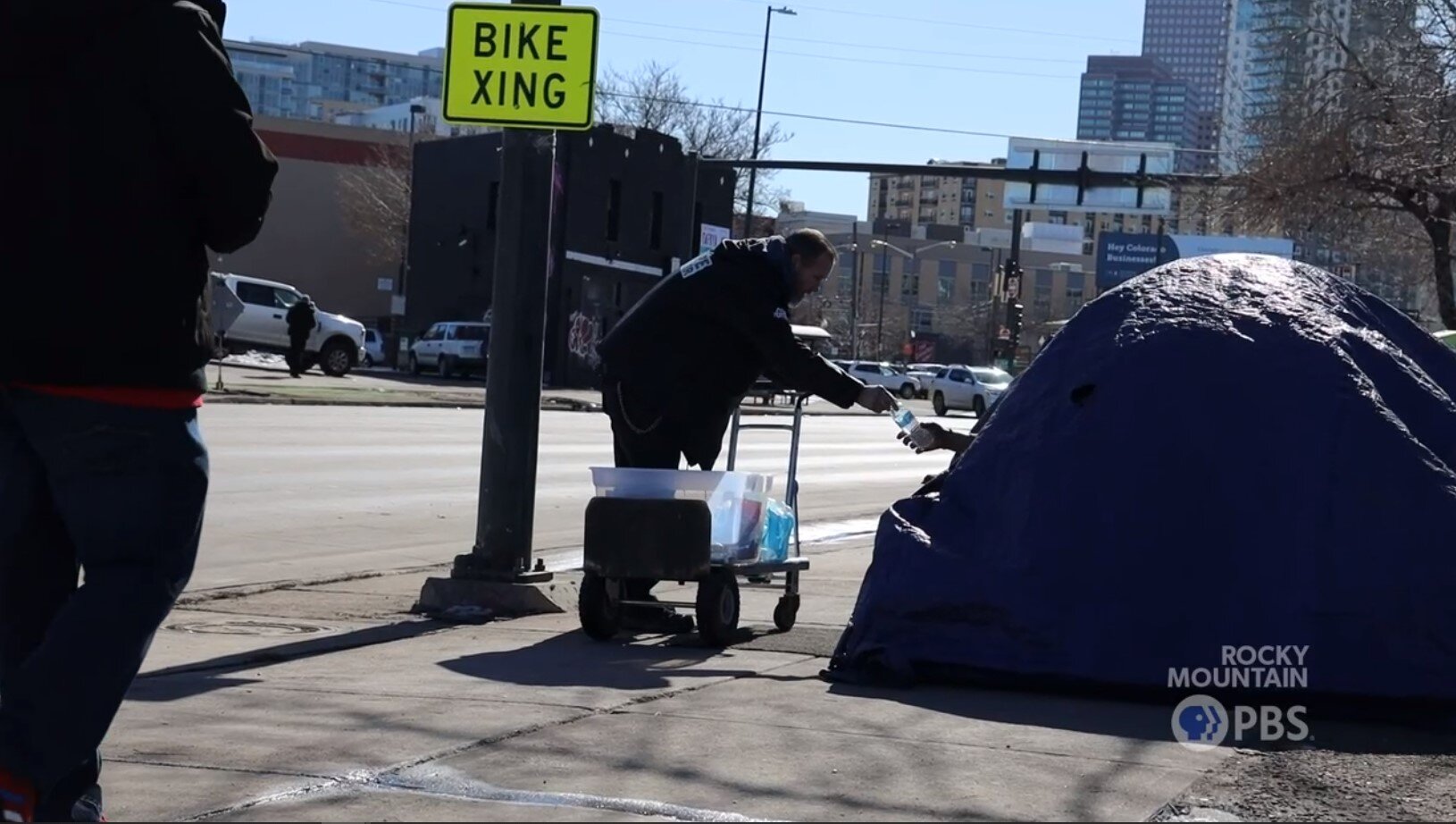Meet the 'hope dealers' behind the Denver Dream Center

DENVER — For the Denver Dream Center, hope is a commodity that can’t be sold. It's routinely given away, at no charge.
“I’m a hope dealer,” explained Donny Andrews, who works at the organization. “We go out and rescue people and restore lives and dreams.”
The Denver Dream Center mainly works with formerly incarcerated people who leave prison and end up without a place to live after their release, something Andrews understands personally.
“I was released on May 11th of last year and was connected with the Dream Center and they helped me put my life back together,” explained Andrews, adding that he needed to learn basic life skills.
“It’s rough getting out prison after 33 years of incarceration, and not knowing how to use a phone, and not knowing how to go grocery shopping.”
According to the National Low Income Housing Coalition, formerly incarcerated people are almost 10 times more likely to experience homelessness than the general population.
After spending time in and out of prison for several years, then experiencing homelessness, Tyrone Thompkins told Rocky Mountain PBS how excited he is to finally move into his own home soon.
“I’ll be moving into an apartment on the first of March, the day of my birthday!” he said excitedly, crediting the Denver Dream Center for making it happen.
Now Thompkins works for the organization as a part of the street team that does direct outreach with the unhoused in Denver, many of whom were formerly incarcerated like Thompkins.
“It’s time for me to go back out into the community that I was destroying and help," he said. "It has changed my life and I’m truly blessed.”
Bryan Sederwall moved to Denver 16 years ago and immediately saw the necessity to connect those experiencing homelessness with not only resources, but also hope and inspiration.
“We say 'See a need, then meet the need.' We do everything from helping men and women transition from incarceration, or get out of gangs, and get back to community and reestablish their families,” said Sederwall.

These days, Sederwall is affectionately known as Pastor B.
“People ask me, as a pastor, where’s my church? I tell them to look at the city and that’s our church; it’s the people," he said. "It’s not just on Sundays, but we hyper focus on Monday through Saturday by building a community.”
The organization provides continuous support for the unhoused to also address issues including hunger, addiction, and abuse. And according to Pastor B, the best way to do that is by finding people where they are and just starting a simple conversation.
“Someone [will] be embarrassed about their story, or their background, and they’ll share that and someone else will be like ‘yeah me too!’ So, it’s no longer baggage, but it becomes a platform for them to move forward and be successful.”
Dana Knowles is a multimedia journalist at Rocky Mountain PBS. You can reach her at danaknowles@rmpbs.org.
William Peterson is a senior photojournalist at Rocky Mountain PBS. You can reach him at williampeterson@rmpbs.org.